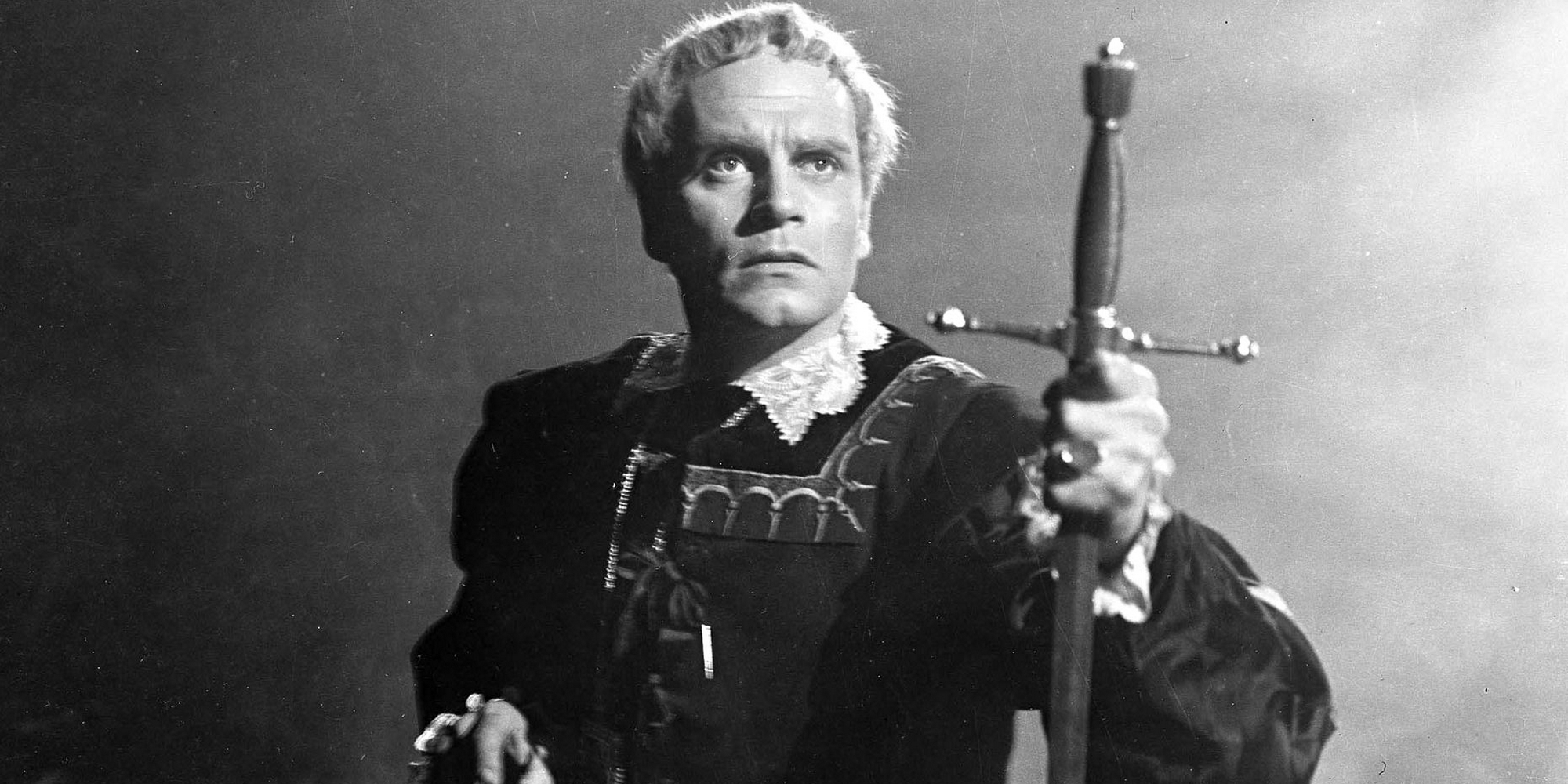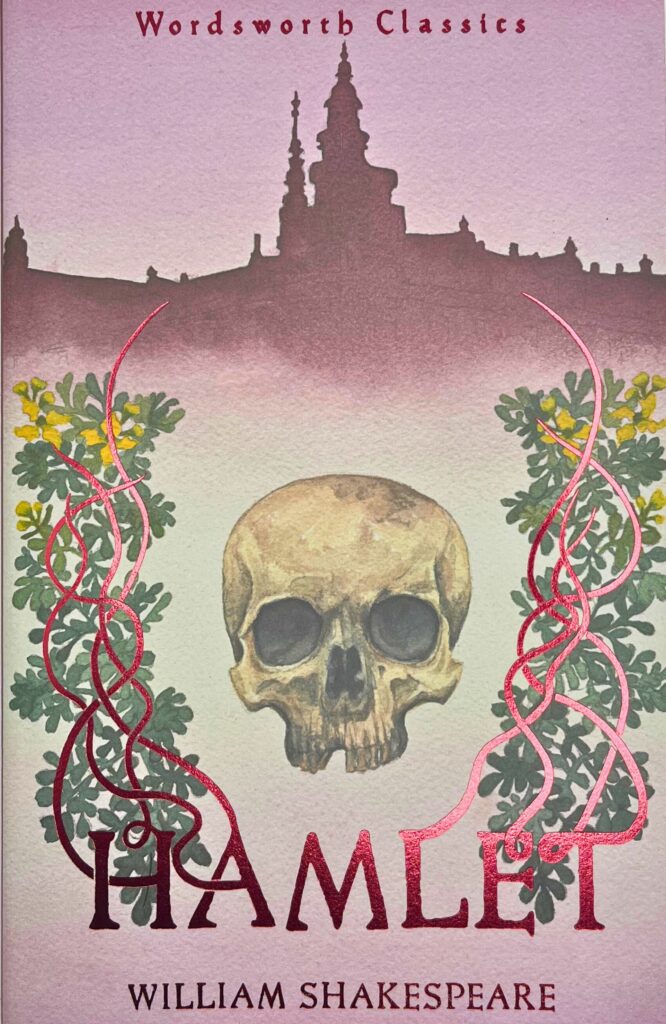
Cedric Watts recounts Shakespeare’s Hamlet
Cedric Watts recounts his dealings with this most problematic of Shakespeare’s plays.
When I was fourteen, the English master at my school told me to write an essay on the character of Hamlet. I read A. C. Bradley’s two chapters on Hamlet in Shakespearean Tragedy. Bradley seemed to have sorted the character out: the key was melancholy. Pushed into melancholy by his father’s death and his mother’s hasty remarriage to Claudius, Hamlet broods, and for a long time is unable to act decisively against Claudius. So I summarised Bradley and thought I had done a good job.
The English master, Mr Gerrard, gave me a vigorous telling-off. ‘You’ve simply paraphrased Bradley! You should have found a critic who disagreed with Bradley and then you could have adjudicated between them. Then your essay might have some element of originality. As it is, you’ve just taken a lazy option.’
I felt ashamed and resentful. He told me to read A. J. A. Waldock’s ‘Hamlet’: A Study in Critical Method, and I found that Waldock denounces Bradley’s interpretation for being all too tidy. In Waldock’s view, the character is divided. He is partly sophisticated modern sceptical Hamlet, and he is partly the ancient revenger of the old sagas, who commit violent actions. The murder of the eavesdropper in the Queen’s bedchamber, the killing of the men who accompany the prince to England, the switching of swords in a duel: all these features were in the ancient legend. Some of Hamlet’s motives are psychological, but others are literary: he does certain things because those are what the character traditionally did.
Well, time passed, and in 1987 the publisher called Harvester invited me to write a critical book on the play. The book had to be concise but comprehensive, offering its own distinctive critical argument. I signed the contract. Then I began to worry. Hamlet is probably the most problematic drama ever written. So how could I deal with the problems and offer my own interpretation in a concise format? I brooded nervously. Then the solution appeared.
Instead of offering a solution to the play’s mysteries, I would offer an explanation of the play’s evident tendency to solicit and frustrate explanations.. You need: 1: commentators committed to maximising the intelligibility of the play, particularly the play treated as written text. 2, Evidence within much of the text of a high level of intelligent coordination. 3. Evidence within parts of the text of an absence of intelligent coordination, indeed signs of apparent confusion or contradiction. 4. Textual material which has an uncertain status, so commentators will argue about whether it belongs to 2 or 3.
So Chapter 1 offered evidence of a lack of coordination. For example, the Ghost is variously a soul from purgatory, a devil from hell, and an actor ‘in the cellarage’ under the stage. Again, Hamlet has not once but twice the bright idea of using a play to test Claudius; Horatio is both an insider and an outsider, and Fortinbras is both a reckless adventurer and a statesman worthy of Hamlet’s vote. Chapter 2 offered evidence of intelligent coordination. For example, we have in the play four sons seeking revenge for a slain father, even though the source-tale had only one son seeking revenge so the ethics of revenge receive in the play thorough analysis. Then there was the fact that in the soliloquy ‘How all occasions do inform against me’, Hamlet voices at the conscious level admiration for the Fortinbras who rapidly resorts to violent action, and, at the unconscious level, scorn for the Fortinbras who kills people ‘even for an eggshell’. And Chapter 3 offered a summing-up. There I emphasised that in the theatre, problems become opportunities. What may be troublesome for the textual analyst may be splendidly challenging for a director. Hamlet is protean partly by design (clever Shakespeare) and partly by accident (hasty Shakespeare). There is no master Hamlet to be discovered by poring over the text, and we don’t need such a discovery; yet we can hardly shrug our shoulders in resignation, for the pleasure of this display derives largely from our quest to solve its mysteries; and if we fail to seek what it never surrenders, we fail to enjoy what it renders. The value is that in our search for answers, our searching of the play is simultaneously a searching for life.
So I finished the book, and it was duly published by Harvester. Later, I had the honour of editing the play for Wordsworth. I sometimes wished that Mr Gerrard was still alive, for then I would have thrust both books at him and said, ‘How’s that then, for a student who once could only paraphrase Bradley?’
But if I had done so, Mr Gerrard would probably have replied: ‘Instead of reproaching me in your self-pitying manner, you should thank me for showing you the way forward. Can’t you see? In the critical book, you’ve used the very method I taught you: thesis, antithesis, synthesis.’
Books associated with this article
